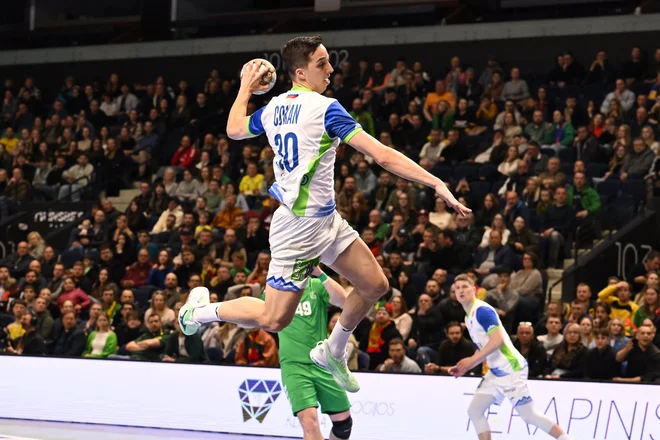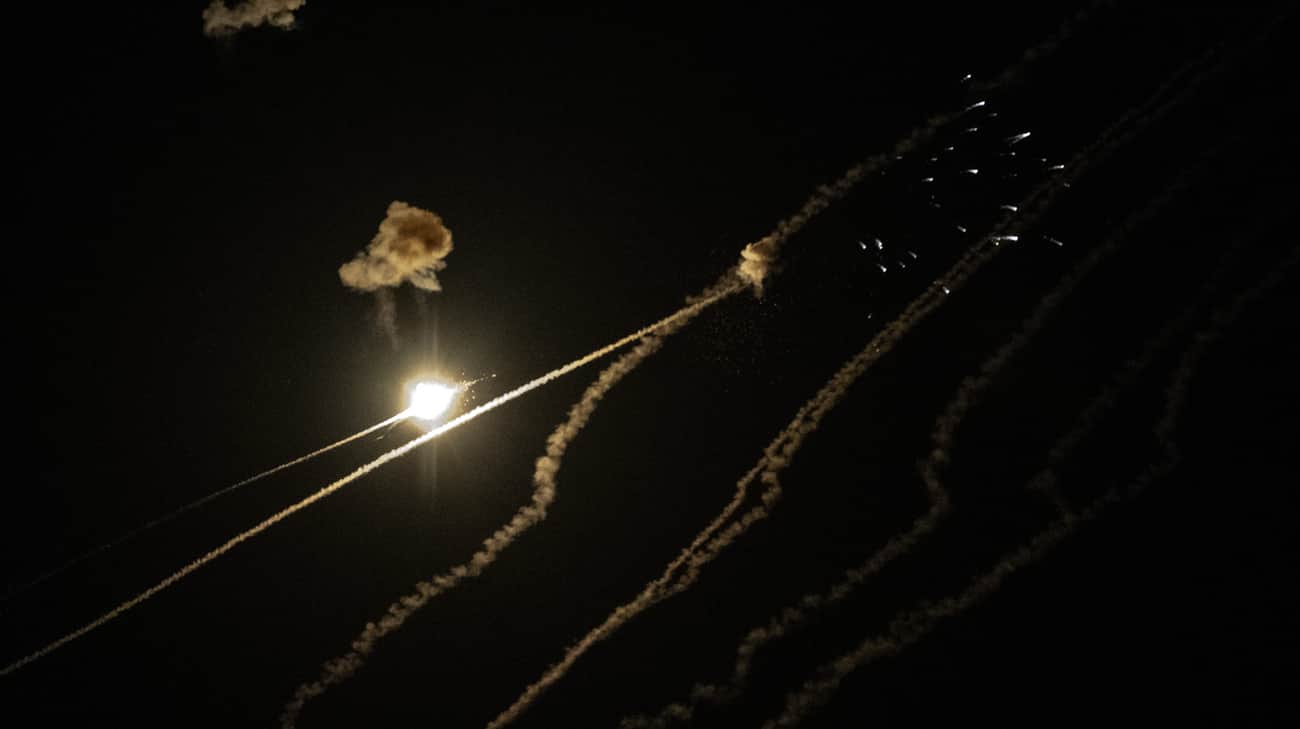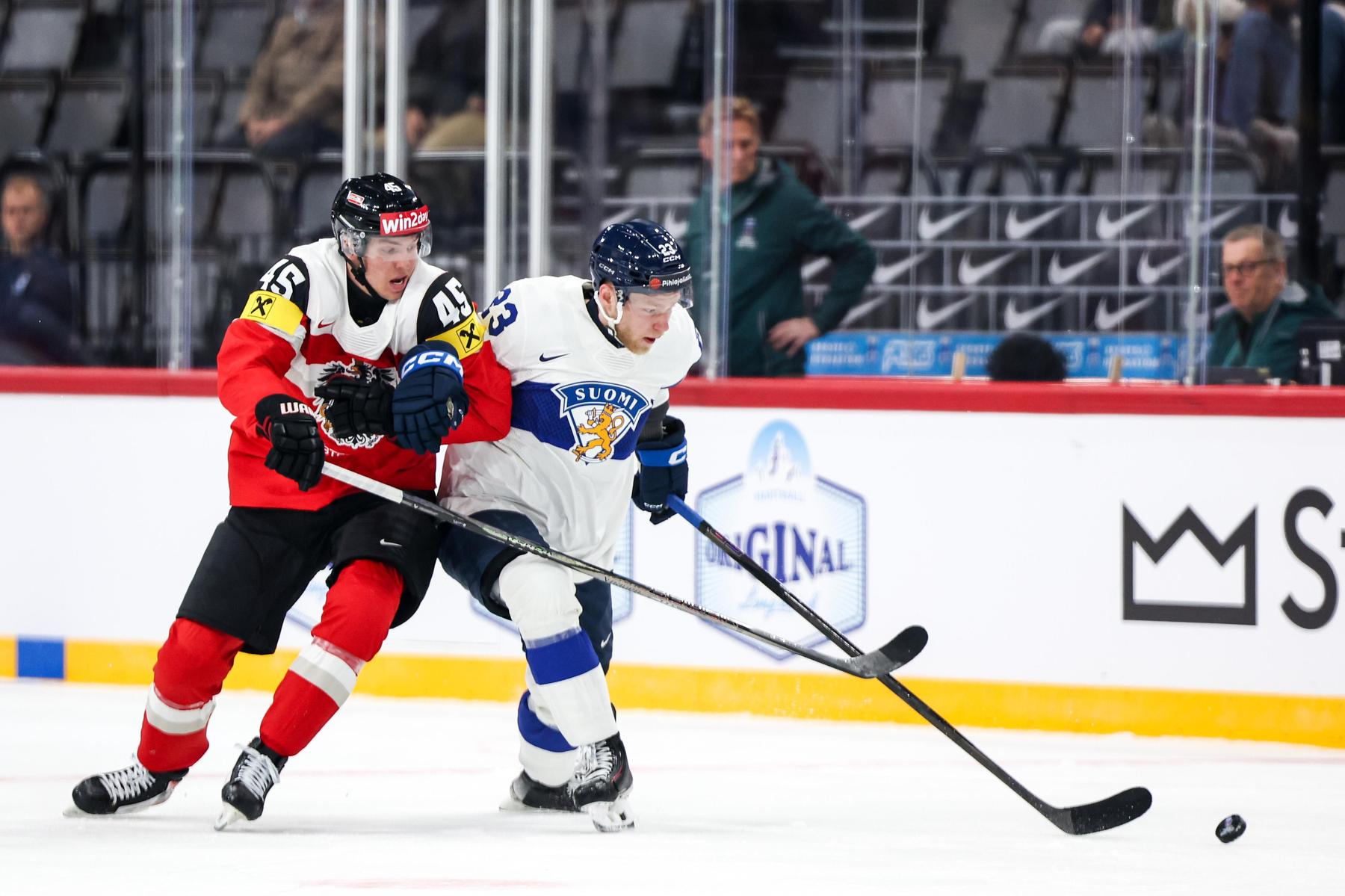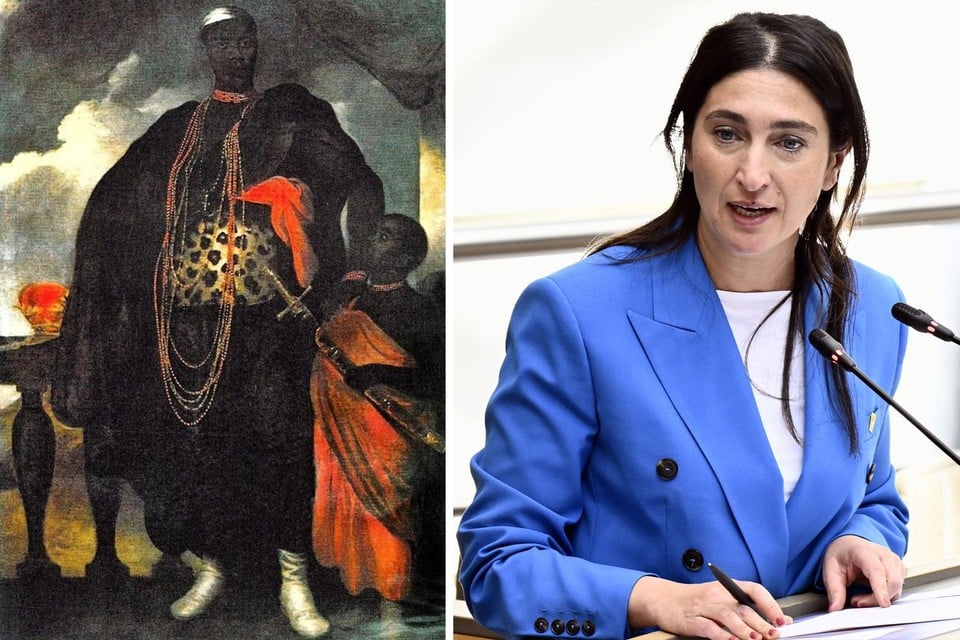Putin and Trump bring France and Poland closer together: is the next step collaboration with nuclear weapons?
:format(webp)/s3/static.nrc.nl/bvhw/wp-content/blogs.dir/114/files/2019/07/gruyter-caroline-de-2019-01-b.png)
The French President Emmanuel Macron and Polish Prime Minister Donald Tusk could not have chosen a more symbolic location than the Stanislas square in Nancy. The square surrounded by gold gates and imposing buildings was built in the eighteenth century at the request of the former Polish King Stanislas Leszczynski, who after he was forced to leave his homeland had become Duke of Lorraine. The square was a gift to the French King Louis De Fifteenth, Leszczynski’s son -in -law.
On Friday, Macron and Tusk came together here under a clear blue sky for the signing of a friendship treaty. In this ‘Treaty of Nancy’, the two agree to work more closely in all kinds of areas: from infrastructure to nuclear energy. But the focus is on defense as expected. For example, a clause has been included in which France and Poles promise « in the case of armed aggression (…) to assist each other, including with military means. » The countries also want to do joint military exercises ‘in the coming months’, Macron said at a press conference. And they want to collaborate more in the fight against « foreign interference, cyber attacks and other threats for our democracies. »
Previously Tusk said that the treaty « opens the possibility of cooperation » in the field of (French) nuclear weapons. There is nothing concrete about this in the treaty, but Macron underlined at the joint press conference that « the interests of our most important partners » were included in the French nuclear doctrine And emphasized that he will always talk about the subject with discretion. Both leaders also expressed themselves with firm terms about the main reason for the closer defense cooperation: Russian President Vladimir Putin. Macron called him « imperialist. » Tusk said that leaders who are on Friday at Putins military parade were present, ashamed. (There were Three European leaders between.)
Read also
Also read: Why the whole of Europe is now looking at Merz and Macron
In line
Previously France made similar friendship treaties with Germany (in 1963, extended in 2019), Italy (2021) and Spain (2023) – all direct neighboring countries. The fact that Paris is now also involved in such a treaty with Warsaw, is mainly the result of the fact that Poland and France have become more alike, says Geopolitics Analyst Gesine Weber, connected to The Parisian branch of the Transatlantic think tank German Marshall Fund of the United States.
« For a long time, France and Poland sat on totally different geopolitical wavelengths: Poland was one of the most US -oriented countries in the European Union, while France has been lobbying for strategic autonomy for years, » says Weber. The historical context Participation: in Poland, the sentiment that France had not protected the Poles against Nazi Germany and later lived the Soviet domination, which meant that they could only rely on the Americans.
But the raid of Russia in Ukraine and the more inside of the US means that the countries are more aligned. « After many years in which France and Poland were almost directly opposite each other on important issues, they can now look each other in their eyes. »
This is part of the fact that both Poland and France currently have leaders who are for a stronger EU-unlike the years before Tusk, when the National-Conservative Piss Poland ruled. There is also almost offered from both sides: in 2027, France will receive a new president and important parliamentary elections will take place in Poland. Moreover, next week there will be presidential elections in Poland – but the president has a less important role. If after 2027 the visions of the countries still fall apart again, the question is how much of the Friendship Treaty is left.
/s3/static.nrc.nl/images/gn4/stripped/data132003466-b95ec6.jpg|https://images.nrc.nl/rlQwWBaelJRIVEDj71N2coPEVj4=/1920x/filters:no_upscale()/s3/static.nrc.nl/images/gn4/stripped/data132003466-b95ec6.jpg|https://images.nrc.nl/LOOQ3pxq79JX_jtcSdnHtHVLA0I=/5760x/filters:no_upscale()/s3/static.nrc.nl/images/gn4/stripped/data132003466-b95ec6.jpg) The Polish and French delegation in the discussions that preceded the signing of the friendship treaty between the two countries.
The Polish and French delegation in the discussions that preceded the signing of the friendship treaty between the two countries.
Photo Christophe Petit Tesson / AP
With the treaty, Macron wants to « recognize the increasingly important role of Poland, » says Weber. « France wants to show that it takes Poland and other countries (in central and) Eastern Europe seriously, especially with regard to their safety and the threat from Russia. » It is in line with what the French president in 2024 in Bratislava Said: When Macron recognized that should have been listened to the worries about the Russian threat that countries have been expressing for years. And it fits Macron anyway, who not only encourages more European cooperation, but also cums bilaterally ties with other Member States.
Read also
Also read: When the presidential candidate claimed to have been caregiver, he got into trouble
Weimar triangle
What the Friendship Treaty will produce concretely is still to be seen. « We are not signing the contracts today, » said Tusk. Weber: « It usually starts with a friendship treaty in which the political ambitions are pronounced and the concrete agreements will be made later. » But that does not mean that the treaty has no direct consequences. « The conclusion of this Convention alone contributes to deterrence: France, one of the most important military powers of Europe, shows that Central and Eastern Europe takes seriously. Opposite Russia and compared to the US. »
It is also a signal that the Weimar triangle (France-Poland Germany) wants to form an important force within the EU-after Friedrich Merz had propagated the same by making his first visits as a German Chancellor to Paris and Warsaw this week. This alliance originated in the nineties to help Poles get rid of communism and to promote cooperation at European level between the three countries.
Under the governments of PIS (2015-2023), this European fraternization dropped to a low point, because PIS Germany was constantly attacking. Among other things, the party demanded reparations for the suffering and the destruction during the Second World War. But during Merz’s visit to Poland, Tusk showed reconciling and said that Poland will no longer ask for the reparations.
In Nancy everything was done to show that it is now also between Poland and France. Macron and Tusk looked at each other admiringly during the press conference, their handshake seemed to take minutes. They showed the Friendship Convention, bound in red leather in front of the cameras with the pride of high school students who have just received their diplomas.
Read also
Read also: ‘More Franco-German Defense Cooperation can lead to a European Security Council’
With the cooperation of Mark Middel.

:format(webp)/s3/static.nrc.nl/wp-content/uploads/2025/05/09090746/data131894290-8a0450.jpg)
:format(webp)/s3/static.nrc.nl/wp-content/uploads/2025/05/08134623/web-0805BUI_macronmerz.jpg)
:format(jpeg):fill(f8f8f8,true)/s3/static.nrc.nl/wp-content/uploads/2019/10/youp5bij3.png)
:format(jpeg):fill(f8f8f8,true)/s3/static.nrc.nl/taxonomy/bf9b707-commentaar-itemafbeelding-2024.png)
/s3/static.nrc.nl/images/gn4/stripped/data131997549-2e0c50.jpg)




